Estimated reading time: 6 minutes
Does your lovable little kitty like to stand in front of a mirror? Do you often catch her pawing or even scratching at her reflection? Why does your cat like to scratch at your mirror?
As adorable or perplexing as it may seem, you’re definitely not the only cat owner to wonder what’s going on. What happens when cats see their reflection? And how do you stop your cat from scratching up your mirror?
In this article, we’re going to dive headfirst into the enchanting world of cats and mirrors. From understanding why your cat might think there’s another cat behind the mirror, to preventing future mirror-scratching marathons, we’ve got all the insights and tips you need to keep both your cat and your mirror happy.
Key Points
Do Cats Understand Mirrors?
Unlike humans, cats don’t recognize themselves on reflective surfaces. Instead, cats may see their reflection as another cat. When they paw or scratch at the mirror, they could be trying to find the “other cat.”
Now, don’t get it twisted, cats aren’t vain; they’re just naturally curious beings trying to figure out their world. And a mirror? Well, that’s one baffling object! Here’s why: the cat in the mirror mimics their every move, yet doesn’t give off any smell or make a sound, which goes against everything they’ve come to understand about the world.
Reasons Why Cats Scratch the Mirror
There are several reasons why cats will scratch at mirrors. Let’s talk about some of the most common ones:
Natural Curiosity
First and foremost, cats are inherently curious creatures. This trait has served them well in the wild, helping them explore their environment and stay safe. In the comfort of your home, this curiosity can sometimes lead them to some strange places and activities. Mirrors, with their reflective surfaces and how they throw light, can pique this curiosity.
When cats scratch at mirrors, they aren’t scheming to ruin your home decor; they’re simply following their natural instinct to explore. The mirrored “cat” mimics their every move flawlessly, creating an intriguing puzzle they can’t resist but try to solve.
Exploring and Understanding
Cats use their paws not just for walking and catching prey, but also for exploring and understanding their surroundings. Pawing at the mirror is part of this exploration. Also, cats have scent glands in their paws, so cats may scratch mirrors to help mark their territory as well.
The surface of a mirror provides a unique sensory experience for your cat. A smooth, shiny surface like a mirror brings a unique sensory experience that many cats find irresistible. They simply enjoy the feel of the smooth surface under their paws.
They might enjoy the coolness under their paws or be fascinated by the way their paw movements influence the “other cat’s” actions. In essence, when your cat is scratching the mirror, they’re engaging with their world in one of the ways they know best.
Finally, your cat may scratch the mirror as a clever ploy to get your attention.
So next time you see your cat pawing away at the mirror, remember they’re not just being cute or naughty. They’re satisfying their curiosity and learning more about their environment, in the most cat-like way possible!
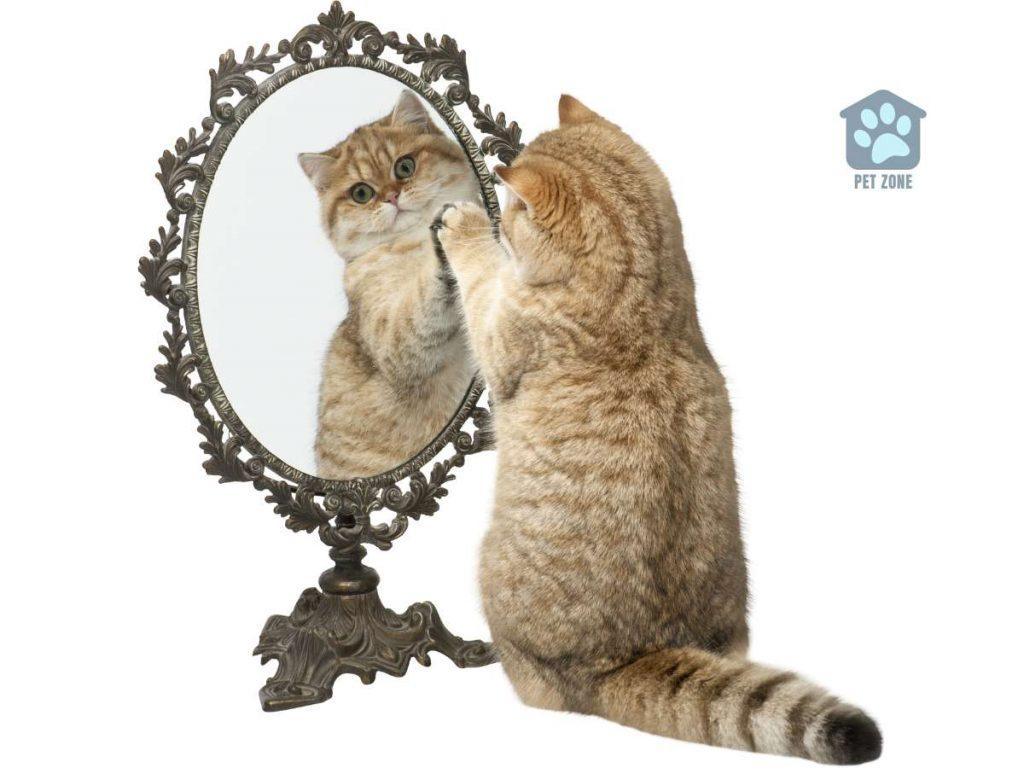
How to Stop My Cat From Scratching the Mirror
While the sight of your cat getting into a friendly boxing match with her mirror reflection can be entertaining, it’s not always ideal. Mirrors can get damaged, and your cat could potentially hurt herself.
So, how do you prevent your cat from scratching at a mirror? Let’s look at some effective strategies.
Provide Your Cat with Alternative Sources of Stimulation
Firstly, cats are easily distracted, so make sure your cat has plenty of other things to occupy their time and satisfy their curiosity. Toys, puzzle feeders, and scratching posts can all serve this purpose.
If your cat is physically and mentally stimulated, she’ll be less likely to take an interest in the mirror. Also, try providing your cat with interactive toys or a window bird feeder to divert your cat’s attention.
Spray Your Cat with Plain Water
A quick spray of plain water can deter many a cat from unwanted behavior. Keep a small spray bottle handy and give a light mist whenever they start to paw or scratch the mirror.
Remember, the goal is not to soak your cat, but to startle them and create a negative association with the mirror-scratching action.
Use Physical Deterrents
You can use physical deterrents to discourage your cat from scratching the mirror. Double-sided tape or sandpaper on the lower part of the mirror can work wonders, as cats don’t like the feel of these materials.
You could also place a piece of furniture in front of the mirror to block access.
Cover the Mirror
If other methods are not working, you may consider covering the mirror, especially when you are not around to supervise. This can be a temporary measure until your cat loses interest in the mirror.
Redirect Scratching Behavior
If you catch your cat scratching the mirror, gently redirect them to a more suitable outlet, like a scratching post. You can make these posts more attractive by adding catnip or using toys. This way, your cat learns where it is appropriate to scratch.
Consult a Professional
If your cat continues to scratch at mirrors or windows despite your best efforts, it may be time to consult with a professional. A cat behaviorist can provide insights into why your cat is fixated on mirrors and offer targeted solutions to redirect this behavior.
Remember, patience is key in helping your cat understand where she can and can’t scratch. Keep reinforcing positive behavior, and soon, your mirror-scratching woes will be a thing of the past!
Conclusion
When your cat decides to scratch at mirrors or windows, it’s often their natural curiosity leading them to explore this smooth, reflective surface that fascinates them.
Providing your cat with plenty of mental stimulation, using deterrents, or even consulting a professional can help your cat break this habit. Moreover, a properly positioned scratching post can serve as an excellent alternative for your cat’s scratching urges.
And hey, let’s not forget that sometimes, your cat might just be using the mirror to get your attention. So if your cat continues to paw at the mirror, even after trying these strategies, maybe it’s time for some extra cuddles or playtime!


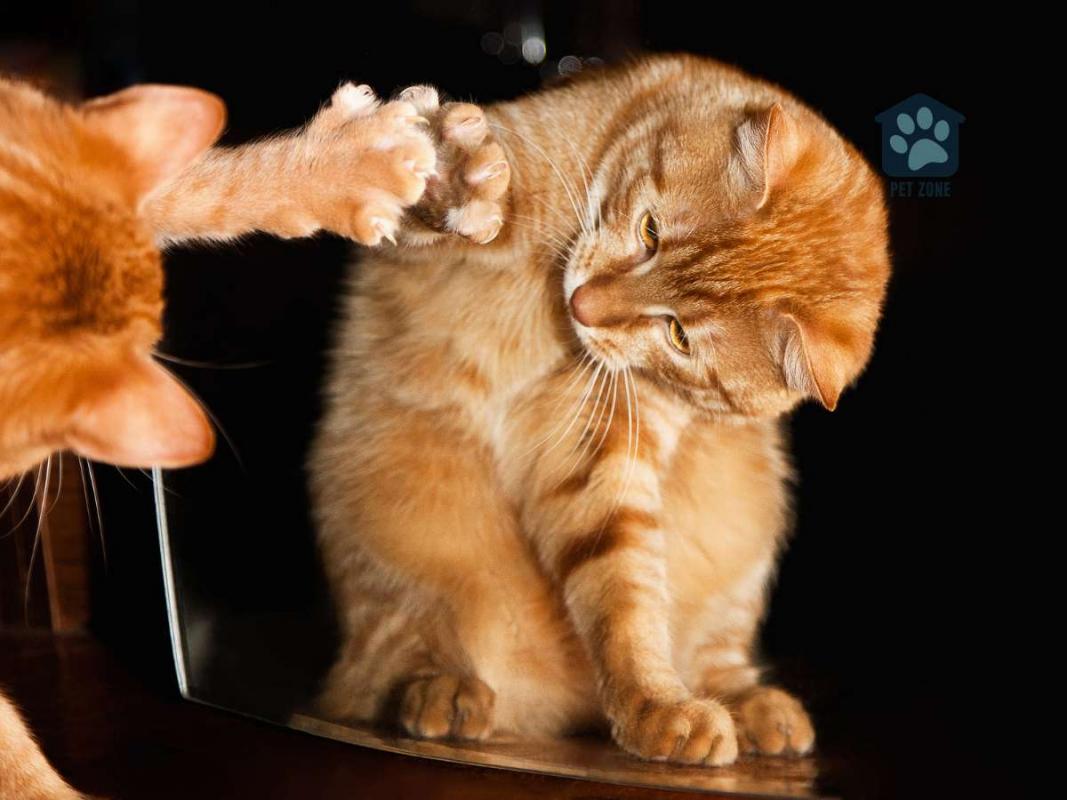
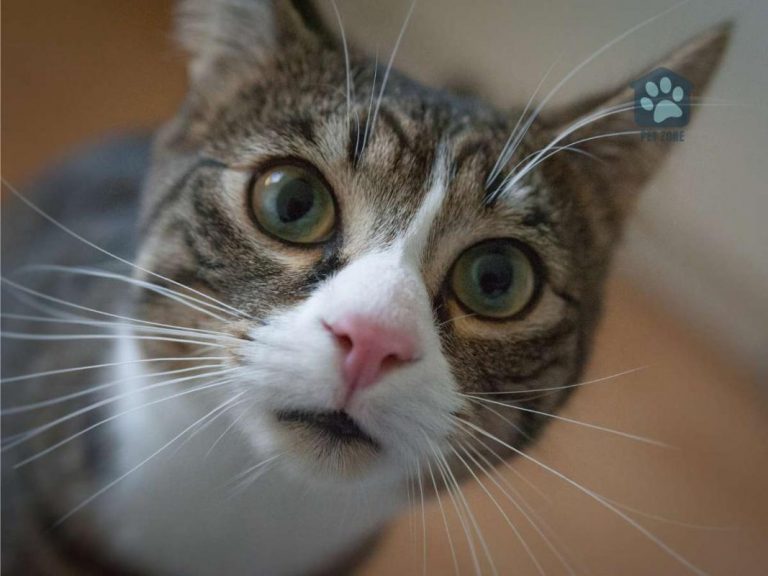
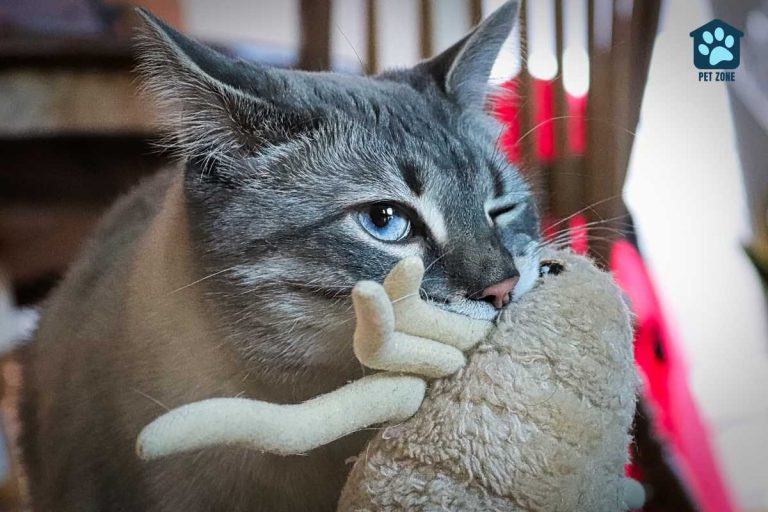
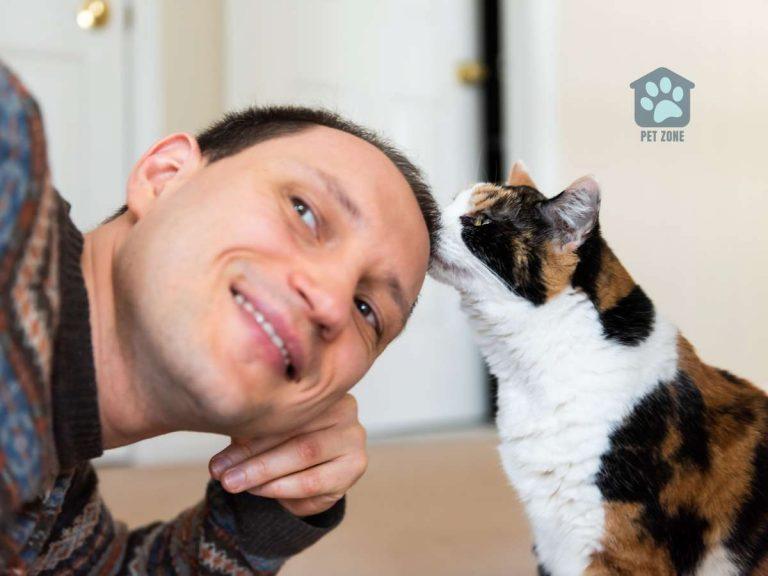
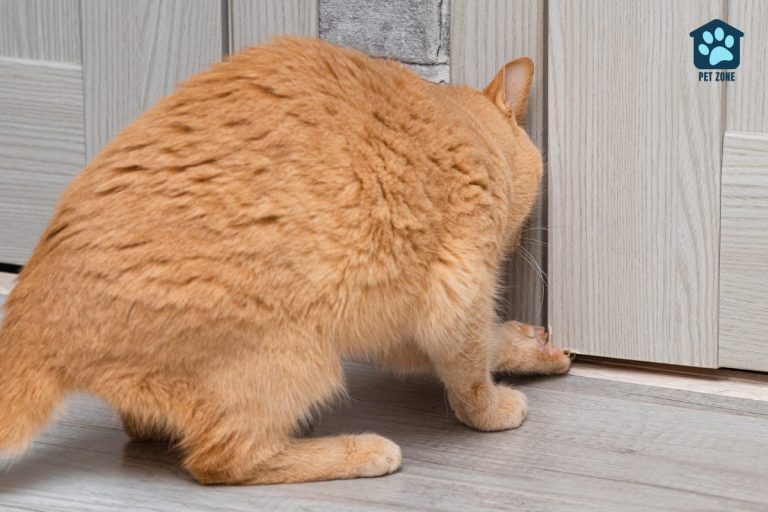

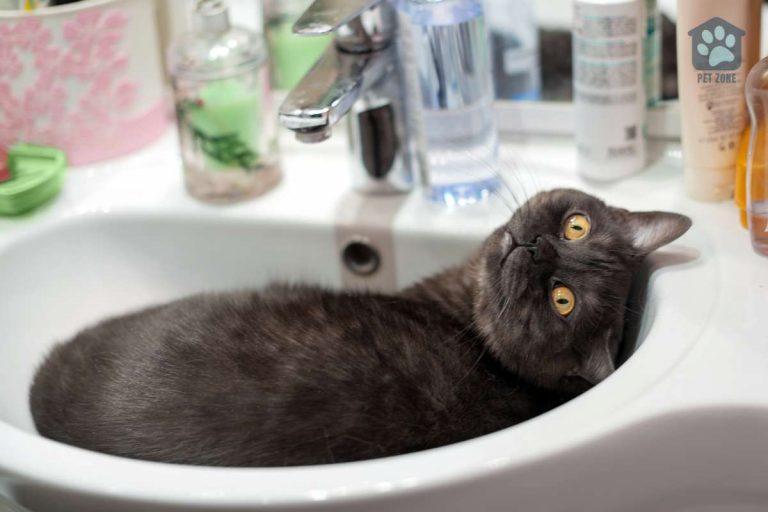
Haha my kittens love looking at themselves in the mirror